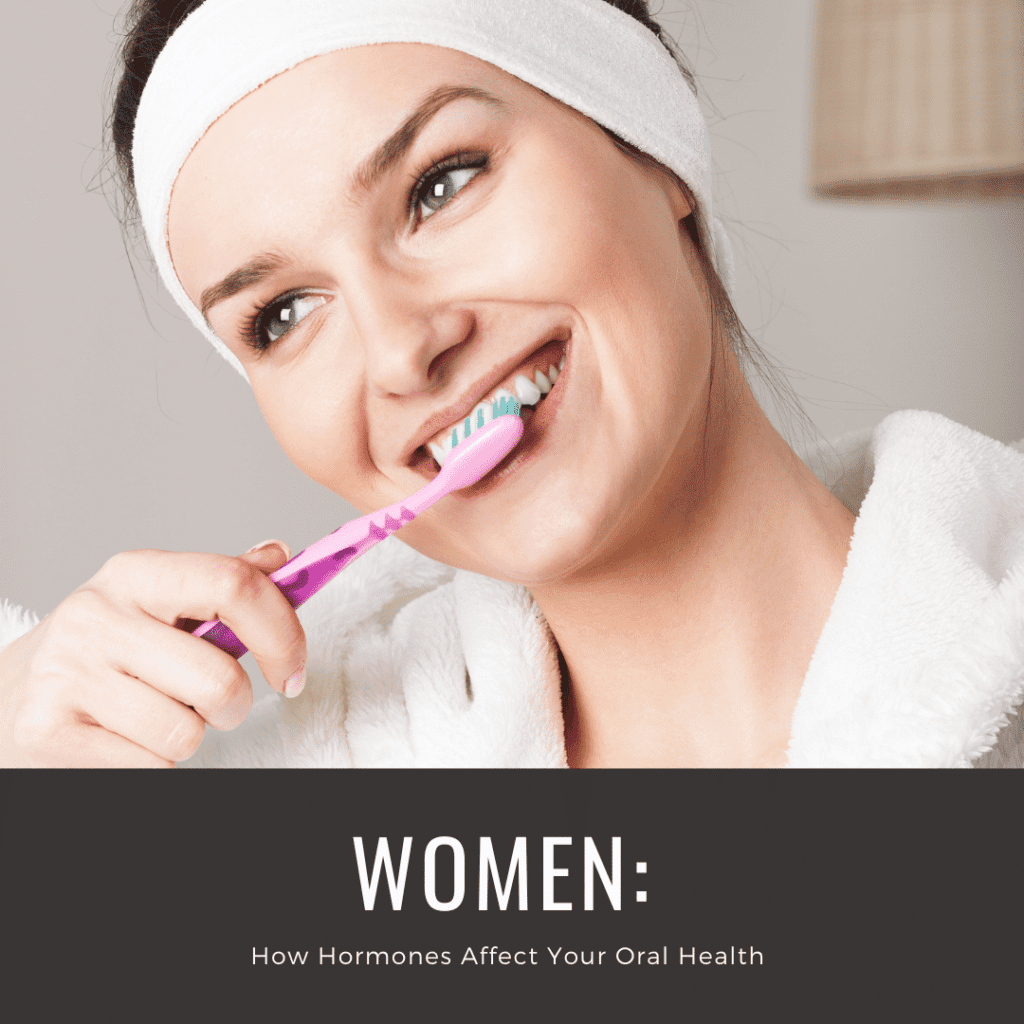From the moment we’re born until the day we die, hormones affect everything our body does, as well as our health. This is because hormones are produced by the body as chemical messengers responsible for certain functions. In short, the type and amount of hormones can affect multiple aspects of how your body functions.
Hormones are also one of the distinct differences between the sexes. Even though both sexes produce the same hormones, these hormones are produced differently, in different amounts, and ultimately have a different effect on the body. For example, both sexes produce estrogen, however women use estrogen for menstruation regulation and pregnancy, while men use estrogen for sperm production. Additionally, women also produce far more estrogen than men.
However, this higher production of estrogen can come at a cost to a woman’s oral health. You see, even though hormones such as estrogen and progesterone are primarily known for maintaining a woman’s reproductive system, they also affect her gums as well. In fact, high levels of estrogen and progesterone increase blood flow to the gums, which increases their sensitivity and makes them “overreact” to plaque and bacteria. This ultimately means that high levels of estrogen and progesterone are often associated with swollen, inflamed gums that bleed easily.
Therefore, it is important for women to be aware of these changes in order to maintain their oral health. Listed below are moments during a woman’s lifetime where her oral health may be at an increased risk:

Puberty
Puberty is the beginning of Womanhood and the beginning of the hypothalamus producing estrogen. When most people think of the hormonal fluctuations associated with puberty, they think about acne. However, hormonal fluctuations are not just causes of acne, they can also cause problems with the gums. In fact many teenage girls are affected by sore tender gums that played easily during puberty. They may also experience canker sores that form on the inside of the mouth.
During Periods
Just before a woman’s period, her estrogen levels rise then drop as her period commences. This rise in estrogen is often accompanied by sore and/or swollen gums in the days just before a woman’s period. Some women also develop canker sores just before their period as well. Both of these symptoms will usually subside once her period has ended. To help alleviate gum tenderness during this time, it is important to decrease the amount of plaque along the gum line by brushing, flossing, and possibly using mouth rinse.
While on Birth Control
Because modern birth control has such low levels of estrogen and progesterone, it does not cause the same effect on the gums. However birth control can affect a woman’s oral health. The most common effect of birth control is that it can increase a woman’s risk of developing a dry socket after a tooth extraction. Nevertheless it is always important to disclose to your dentist whether you are taking birth control as the effectiveness of your birth control can be affected by certain prescribed antibiotics.
During Pregnancy

During pregnancy a woman goes through so many changes that the last thing on her mind is her oral health. However the high levels of estrogen associated with pregnancy predispose women to pregnancy gingivitis, which is a mild form of gum disease. Unfortunately, untreated gum disease can advance and cause issues with the pregnancy such as preeclampsia, premature birth, low birth weight. Because of this it is recommended to attend frequent dental appointments and to practice good oral hygiene throughout your pregnancy.
Menopause
During menopause, a woman’s body also changes. However instead of a rise in estrogen, menopause is characterized by a drop in estrogen. Although most oral health issues are caused by a rise in estrogen, there are certain oral health issues that are caused by a drop in estrogen production. One of the most concerning changes is the potential of bone loss. Another change is decreased saliva production that often results in dry mouth, which can increase the risk of tooth decay and gum disease. Since gum disease can also lead to bone loss, it is recommended to continue to practice good oral hygiene to prevent both tooth decay and gum disease.

Dr. Admar holds dual certificates — a Bachelor of Dental Surgery (BDS) in 2010 from India and a Doctor of Dental Surgery (DDS) in 2014 from Canada. He is now a full time practicing dentist in Kamloops where he provides a variety of services, including emergency dentistry. Dr. Admar spends hundreds of hours in continued dental education to stay up to date in cosmetic and implant dentistry and he has achieved several advanced qualifications.


